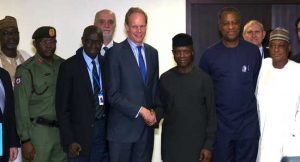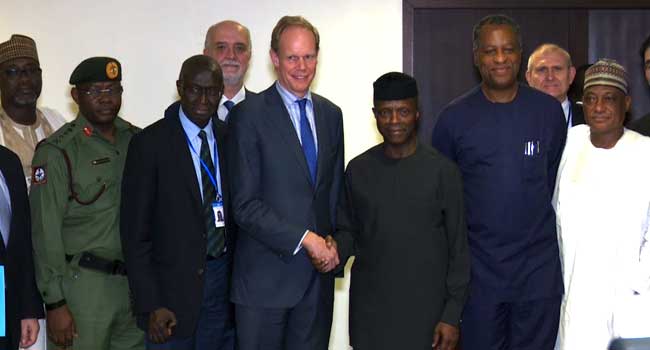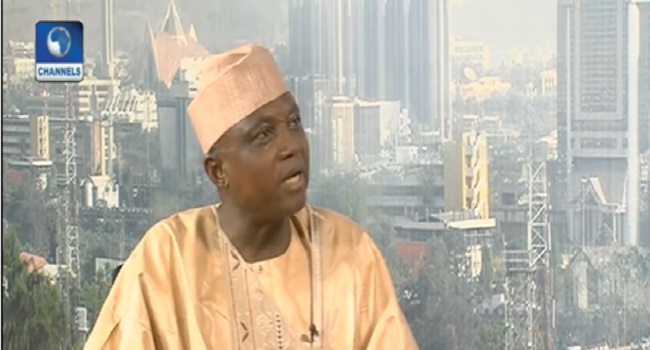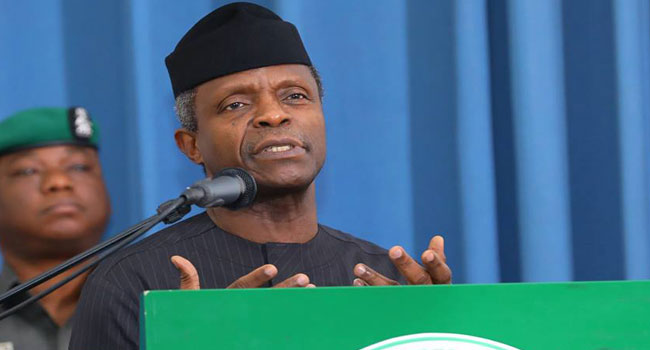
Professor Osinbajo said this during a closed door meeting with the UN delegation at the Presidential Villa in Abuja, the Federal Capital Territory.
He, however, noted that it was time for the international community to take another look at the international legal instruments and conventions that govern warfare and conflicts in the light of the unconventional and brutal operations of terrorists and insurgents around the world.
“We must, on a global scale look again at how to deal with these new challenges.
“We need to look at the governing conventions, as well as what type of legal categories and recognition of law we should give them.
“We need to re-examine how to deal with these individuals according to law,” the Acting President said in a statement issued on Monday by his spokesman, Laolu Akande.
He also assured the UN team that the Federal Government would progressively review the Rules of Engagement by the military and across the nation’s security system while taking human rights issues into consideration.
Professor Osinbajo added that President Muhammadu Buhari’s Social Investment Programmes which include the Conditional Cash Transfer, the GEEP Micro Credit scheme and the N-Power job programme would cater to the developmental needs of the northeast.
He said “we are already disbursing the cash transfers in some Internally Displaced Persons (IDPs) camps and host communities,” adding that the present administration was implementing a micro-credit scheme while using the Social Investment Programmes to resuscitate the local economies, including through the Anchor Borrowers’ plan for farmers.
The Acting President further urged the international community to support the Federal Government in the area of humanitarian response, describing the challenge as “massive”.
He hinted that the government was also in the process of passing a Northeast Development Commission bill that would deal with some of the long term developmental issues.
The Security Council members were led to the Presidential Villa by the UK Permanent Representative to the UN, Ambassador Mathew Rycroft.
The team comprises of all the five permanent members and 10 non-permanent members of the Security Council.
Speaking earlier at the meeting, Ambassador Rycroft praised the Nigerian Government for its handling of the humanitarian challenge in the Northeast.
He called for a long term developmental outlook in the region to address the issues of good governance, human rights, women’s participation, economic revival, education and jobs.
The delegation is leaving Nigeria with a pledge that the United Nations Security Council would play its role well in assisting the Nigerian Government to tackle the challenges in the conflict zones.
Briefing State House correspondents after the meeting, the Minister of Foreign Affairs, Mr Geofrey Onyeama, said the Federal Government is pleased with the tour of the northeast by the Council.
He assured the team that Nigeria would leverage on it to access all the funds needed for the rehabilitation of the IDPs in region.
The meeting was attended by some members of the Federal Executive Council and top government officials including the Minister of Defence, Major General Mansur Dan-Ali (rtd), and the Minister of Foreign Affairs, Mr Geoffrey Onyeama.
Others are the Minster of Budget and Planning, Udo Udoma; Minister of Water Resources, Suleiman Adamu; Minister of State for Environment, Ibrahim Jubrin; the National Security Adviser, Major General Babagana Monguno (rtd), and the Chief of Defence Staff, General Gabriel Olonisakin.




